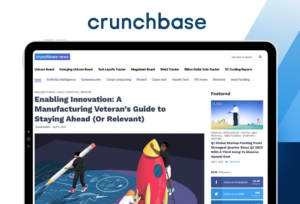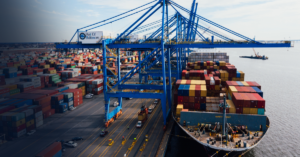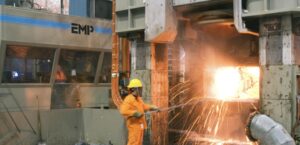Industry Challenges & Solutions for Food & Chemical Process Manufacturers

Challenges are nothing new to the manufacturing industry. However, the COVID-19 pandemic has hit manufacturing companies incredibly hard, especially those specializing in food, beverage, and chemicals.
Food processors are preparing for a new normal.
The elevated issues that food and beverage manufacturers are facing right now are similar to those that the industry has been tackling for years, only in a different context. Consumers continue to demand more product innovations, as the industry encounters heightening quality and compliance pressures, smaller profit margins, new opportunities, and an evolving workforce. These, and many others, are the factors that are compelling food and beverage manufacturers to take a creative approach to their industry moving forward.
Chemical companies face a host of regulations and oversight.
The Environmental Protection Agency (EPA) governs emissions, spills, and releases of hazardous and toxic materials. At the same time, the Occupational Safety and Health Administration (OSHA) monitors workers’ health and safety in the workplace. The Department of Transportation (DOT) scrutinizes storage, use, and the transporting of chemicals. Most chemicals in the U.S. are regulated under the Toxic Substances Chemical Act (TSCA) of 1976, which puts the responsibility of compliance on the chemical companies that manufacture them.
While the industries are facing a wide range of challenges, here are two at the top of the list, along with some equivalent solutions.
Quality and compliance requirements
As pointed out earlier, chemical companies are subjected to an “alphabet soup” of regulatory mandates. With the trend today leaning heavily toward reducing the “carbon footprint,” green compliance takes on a more significant role. Many of these companies are regulated for wastewater (effluent) production and emissions. There could be limits to the amount of product they can ship to a landfill. How can they manage all of this?
Compliance with these agencies would be complicated (if not impossible) without the technology provided by an enterprise resource planning (ERP) system to capture and track the quality data at the item or lot level. The information from a vendor’s ingredients, intermediate goods, and finished goods is maintained in the ERP application’s quality and MSDS (Material Safety Data Sheet) modules.
On the other hand, food and beverage manufacturers are expected to take a proactive approach to quality and recall management. Like chemical companies, they may be subject to oversight from the Environmental Protection Agency, Occupational Safety and Health Administration, Department of Transportation, and the Food and Drug Administration. New domestic regulations now require companies to be specific in preparing for risks by identifying any threats and recommending remediation. ERP solutions provide food and beverage companies with the means for logging, monitoring, and tracking at each stage of the supply chain.
Formula or recipe management
The chemical industry relies on formulas to maintain accurate and consistent products. Tracking measurements, combining recipes with available inventory, ordering supplies, and scaling for the production floor add to the complexities of manufacturing chemicals.
The ERP software helps with formula management, cross-referencing of the formulas with production schedules, inventory, and supply chain logistics. A high-quality ERP solution can provide the following:
- Substitutions that allow for different, lower-cost ingredients that achieve the same results
- Scale formulas that consider variances in available materials and create optimized production runs
- Cost management to provide an accurate picture of the costs of intermediate goods or end products that factor in scrap, byproducts, and waste.
- Unit of measure conversions
- Recipe options to account for quality variances or capacity differences among other locations
For food and beverage organizations, recipe management is the main focus. Every ingredient in the recipe contributes to the taste and nutritional value of the product. Being able to store and scale recipes is of paramount importance to food processors. Once again, the ERP system allows them to maintain each recipe with a bill of materials (BOM) that shows all of its physical properties, various revisions, and any production notes.
ERP has tremendous benefits to food and beverage manufacturers and chemical manufacturers alike. While your manufacturing enterprise weathers new and existing industry pain points and challenges, our entire team of ERP experts is on standby. We’ll help you evaluate ERP software and find the right solution for your business and your budget. Contact us with questions or for more information, or give us a call at 412-562-9660, or email us at info@decision.com.
Similar Blogs

Decision Resources Featured on Crunchbase

Chips, drugs, and steel — how to prepare for Trump tariffs





